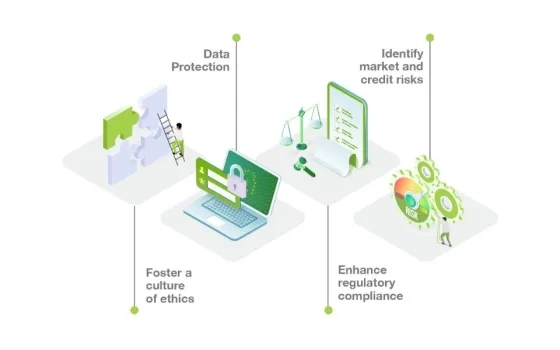Terms of Use
The use of this site and the content contained therein is governed by the Terms of Use. When you use this site you acknowledge that you have read the Terms of Use and that you accept and will be bound by the terms hereof and such terms as may be modified from time to time.
- All text, graphics, audio, design and other works on the site are the copyrighted works of nasscom unless otherwise indicated. All rights reserved.
- Content on the site is for personal use only and may be downloaded provided the material is kept intact and there is no violation of the copyrights, trademarks, and other proprietary rights. Any alteration of the material or use of the material contained in the site for any other purpose is a violation of the copyright of nasscom and / or its affiliates or associates or of its third-party information providers. This material cannot be copied, reproduced, republished, uploaded, posted, transmitted or distributed in any way for non-personal use without obtaining the prior permission from nasscom.
- The nasscom Members login is for the reference of only registered nasscom Member Companies.
- nasscom reserves the right to modify the terms of use of any service without any liability. nasscom reserves the right to take all measures necessary to prevent access to any service or termination of service if the terms of use are not complied with or are contravened or there is any violation of copyright, trademark or other proprietary right.
- From time to time nasscom may supplement these terms of use with additional terms pertaining to specific content (additional terms). Such additional terms are hereby incorporated by reference into these Terms of Use.
Disclaimer
- The Company information provided on the nasscom web site is as per data collected by companies. nasscom is not liable on the authenticity of such data.
- nasscom has exercised due diligence in checking the correctness and authenticity of the information contained in the site, but nasscom or any of its affiliates or associates or employees shall not be in any way responsible for any loss or damage that may arise to any person from any inadvertent error in the information contained in this site. The information from or through this site is provided "as is" and all warranties express or implied of any kind, regarding any matter pertaining to any service or channel, including without limitation the implied warranties of merchantability, fitness for a particular purpose, and non-infringement are disclaimed. nasscom and its affiliates and associates shall not be liable, at any time, for any failure of performance, error, omission, interruption, deletion, defect, delay in operation or transmission, computer virus, communications line failure, theft or destruction or unauthorised access to, alteration of, or use of information contained on the site. No representations, warranties or guarantees whatsoever are made as to the accuracy, adequacy, reliability, completeness, suitability or applicability of the information to a particular situation.
- nasscom or its affiliates or associates or its employees do not provide any judgments or warranty in respect of the authenticity or correctness of the content of other services or sites to which links are provided. A link to another service or site is not an endorsement of any products or services on such site or the site.
- The content provided is for information purposes alone and does not substitute for specific advice whether investment, legal, taxation or otherwise. nasscom disclaims all liability for damages caused by use of content on the site.
- All responsibility and liability for any damages caused by downloading of any data is disclaimed.
- nasscom reserves the right to modify, suspend / cancel, or discontinue any or all sections, or service at any time without notice.
For any grievances under the Information Technology Act 2000, please get in touch with Grievance Officer, Mr. Anirban Mandal at data-query@nasscom.in.

















Comment
Hi Jeff,
What are your thoughts on artificial intelligence in education? How will it impact the industry in the future? And how will the smart-classrooms change with AR/VR technology?
Thanks.
Bhargav
Thanks for your questions, all questions will be answered tomorrow. We are taking more till 4p.m. today.
Too early to tell impact of blockchain on India economy. Regulation will be a major factor in adoption of blockchain, so this is very difficult to predict. However, if the potential of Internet of Things (IoT) is to be realized, an automated secure payment (including micropayment) mechanism is required. Blockchain is probably leading candidate for this at this time. Thus, if India wants to implement IoT, blockchain, or something similar, will be required.
Indian companies have one huge advantage compared to Chinese companies – traditionally, Indian companies have focused on external/global opportunities from Day1, while Chinese companies have tended to focus on the internal China opportunity. Thus, many Indian companies are better known globally than Chinese companies, but this is changing with Alibaba and Tencent.
The English speaking advantage of India will be significant for some time – automation will not remove this obstacle in the short to medium term.
The more interesting question – which Indian software companies could enter China? This is probably the single biggest software market in the future – can/should India ignore this opportunity?
No lessons from China. They solved this problem through limiting birth. For India, youth and numbers are a blessing if enough good jobs can be created. If not, more bodies are a drag on the economy. Good news, I think India has caught the entrepreneurship bug! Everyone sees opportunity, particularly in mobile. Also, more new companies focusing on domestic opportunity of India, rather than serving global markets. Other factor driving this is the cost to start a business has declined dramatically, as most software is “pay as you go” these days. No one understands India better than Indians!!!! Huge opportunity!!!!!
In the short to medium term AI not critical for classroom. At least at graduate level. In an MBA, many of the questions/problems are highly unstructured, and thus not easily solvable by AI. I think you will see more electives with AI providing in-depth analysis/support and students/managers can then make more informed choices. So hopefully, management moves from intuition to factual insights!
Thanks for the opportunity Jeff. I have a question for the professor in you. For a long time, it has been said that the youth of India is its strength. The IT sector benefited in a massive way from the available talent and the youth benefited from the BPO jobs. But that balance is already breaking. There are less jobs than before, the existing degrees can't get a decent job and new job roles are still being defined.
How do you think India can manage its young talent well in the coming decade? Are there any lessons from China?
Thanks for NASSCOM Community to connect with Dr Jeffery L Sampler !!!
What is the impact on Blockchain technology on Indian economy ?
Given that you have studied Indian companies, what sort of future preparedness do you see in the Indian ecosystem, especially, compared to China?
Secondly, are Indian BPOs losing the edge that English speaking youth gave it? Will there be scope for such an edge in the age of automation?
Thank for the opportunity to connect with you! I have two questions.
1.What are the key value propositions (both generic and specific) that can be presented by an IT outsourcing services company from India. Is there any major shift in value proposition pitch from 10 years back to the next decade?
2. What are the marketing challenges that you foresee for Indian-origin enterprise software applications globally? Can you share some solutions with respect to what their brand building strategies should be?
Technology Marketer